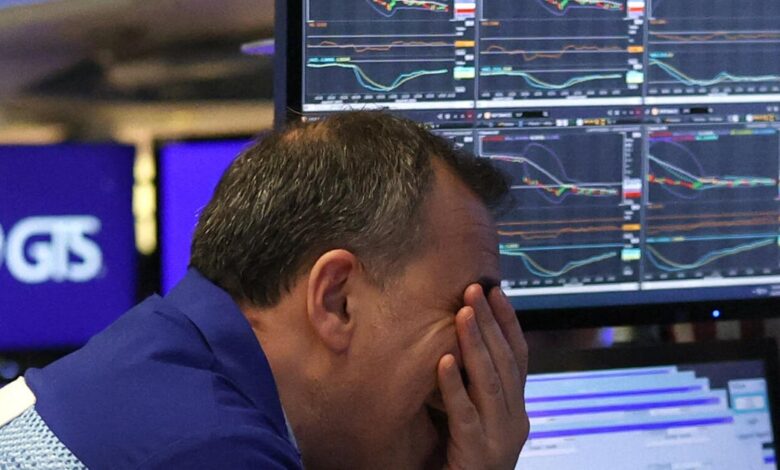Stock market rout deepens as Dow plunges more than 2,200 points and Nasdaq enters bear market

This week, China announced plans to impose new tariffs on American goods in response to President Trump’s levies. The move is seen as a retaliatory measure against the U.S. tariffs that have been imposed on Chinese imports. The escalating trade tensions between the two economic giants have raised concerns about a full-blown trade war that could have far-reaching implications for global economic growth.
The Chinese tariffs will target a wide range of U.S. products, including agricultural goods, automobiles, and energy products. This retaliatory action is expected to further strain the already fragile relationship between the two countries and could lead to a further escalation of trade tensions.
The impact of the trade war between the U.S. and China is not limited to the two countries involved. The global economy is closely interconnected, and disruptions in one part of the world can have ripple effects across the globe. The uncertainty surrounding trade policy is already weighing on investor sentiment and could dampen economic growth in other parts of the world.
In response to the escalating trade tensions, central banks around the world are closely monitoring the situation and stand ready to take action to support their economies. The Federal Reserve, for example, has indicated that it will closely monitor the impact of the tariffs on the U.S. economy and will take appropriate measures to ensure economic stability.
As the trade war between the U.S. and China continues to unfold, investors are bracing for further volatility in financial markets. The uncertainty surrounding trade policy is likely to keep markets on edge, with investors closely watching for any developments that could impact their investments.
In conclusion, the escalating trade tensions between the U.S. and China have sent shockwaves through financial markets and raised concerns about the prospect of a global trade war. The impact of the tariffs imposed by both countries is already being felt, and investors are bracing for further volatility as the situation continues to unfold. The uncertainty surrounding trade policy is likely to keep markets on edge in the coming weeks and months, with the potential for far-reaching implications for the global economy. China announced on Friday that it will be imposing a 34% tariff on all U.S. imports starting April 10. This move by the Chinese Commerce Ministry is seen as a retaliatory response to the ongoing trade tensions between the two countries. In addition to the tariffs, China also stated that it would be implementing stricter restrictions on the export of rare earth materials, which are crucial components in products like computer chips and electric vehicle batteries. Furthermore, trade sanctions will be imposed on 27 additional U.S. companies.
Analysts from Capital Economics have described this latest action by China as aggressive and escalatory, making it highly unlikely for a near-term deal to end the trade war between the two superpowers. This move is expected to have a significant impact on the global economy and trade relations between the U.S. and China.
On a more positive note, the U.S. job market showed strong growth in March, with employers adding 228,000 jobs, surpassing analyst forecasts. However, the nation’s unemployment rate rose slightly to 4.2% from 4.1% in February. Despite the robust job growth, experts believe that the latest hiring numbers do not fully reflect the impact of the Trump administration’s trade policies on the economy.
Brian Jacobsen, chief economist at Annex Wealth Management, likened the recent fluctuations in the stock market to a painful operation performed without anesthesia for investors. The uncertainty surrounding the trade tensions between the U.S. and China continues to weigh heavily on financial markets and investor sentiment.
In conclusion, the latest developments in the U.S.-China trade war and the strong job growth in the U.S. highlight the complex and interconnected nature of the global economy. The ongoing trade tensions between the two superpowers are likely to have far-reaching implications for businesses, consumers, and investors around the world.





